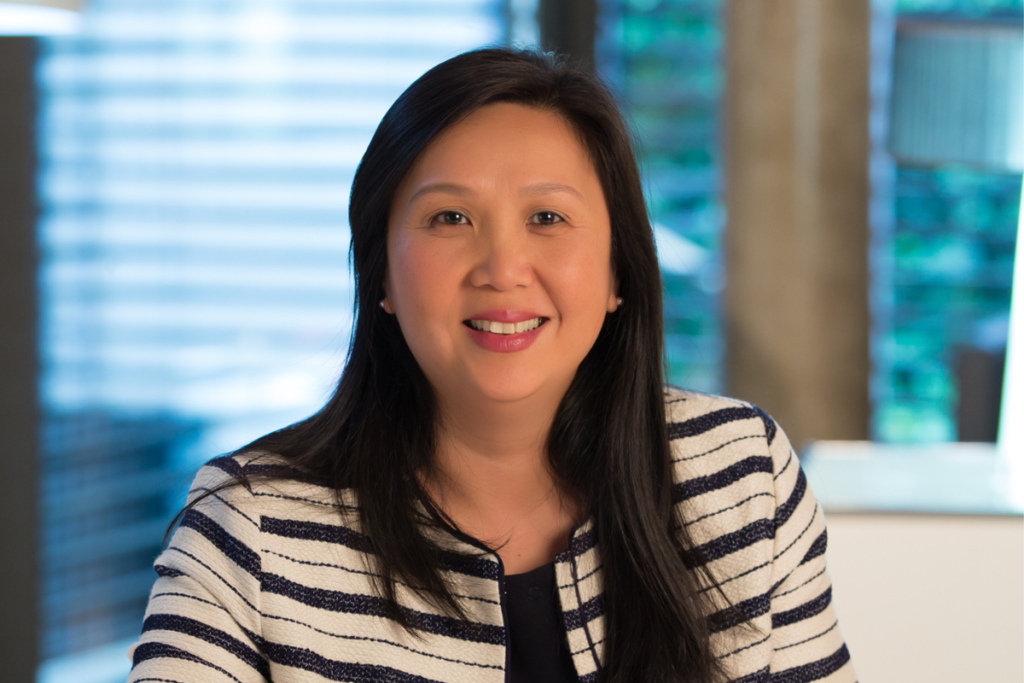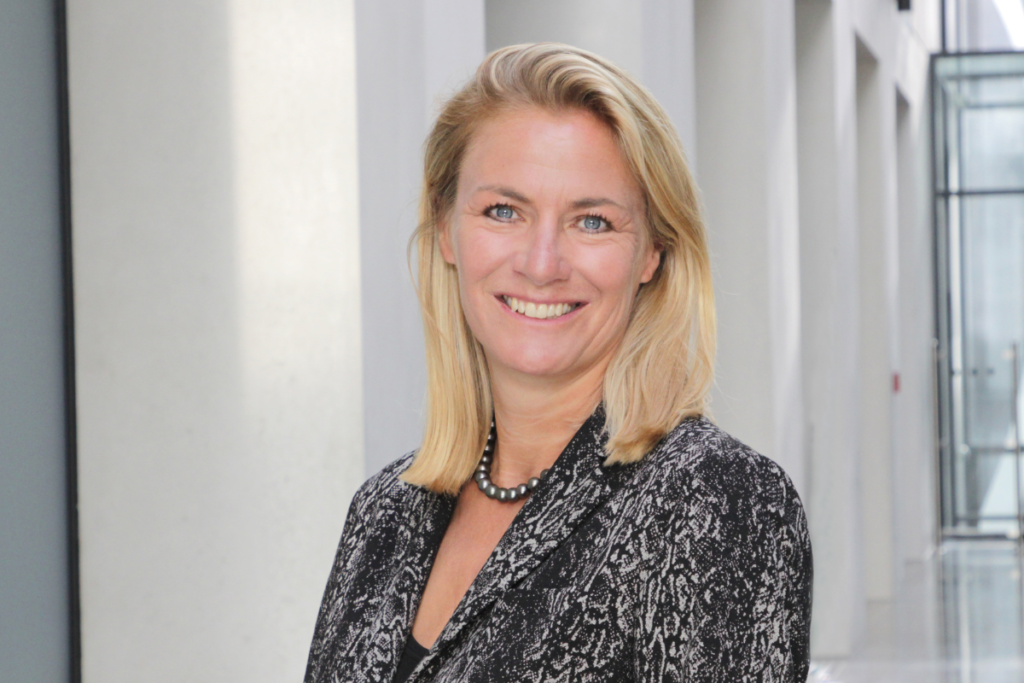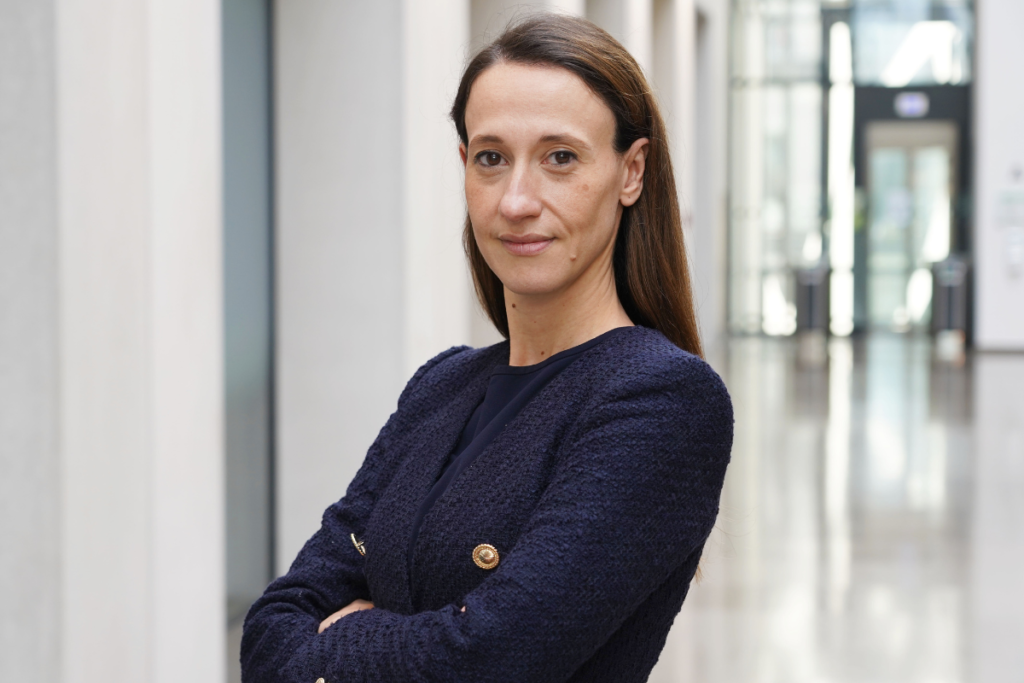WMN of The Big 4 – Part 2: Deloitte

LUX WMN
Photo: Deloitte Luxembourg
As good as this may seem, women are still underrepresented in C-level roles, are given fewer leadership positions and within private & equity firms, women account for less than 10% of senior roles. With the growing discussion surrounding gender disparity & the importance of women’s empowerment, we sat with some key female figures working in Luxembourg’s the Big 4, to discuss their roles, their inspiration and what it truly means to be a woman in finance.
Amandine Gillet

What is your current role at Deloitte?
I am a Partner in our Digital team, which is part of Consulting. We combine strategy, creativity and technology to solve our client’s challenges. Over the course of 11 years, I have been with Deloitte in Canada, then Australia and now Luxembourg, mostly focusing on the manufacturing sector.
What is your recipe for success? What would you wish for all women?
There is not only one recipe, and it’s important that everyone finds their own. But what’s helped me the most was taking the time to understand my own values and principles, sticking to them no matter what, and challenging the rules in the process. I have also embraced a “test and learn” approach to my life and career, moving and trying new things—quickly pivoting if required. Like Van Gogh said, no flower grows on a paved road.
What I wish for all women is simply for them to be able to do what they want to do without being questioned or judged. They should be able to decide things for themselves. I also want them to be represented on the main stage. Not the women’s stage. Not the minority stage. The stage. And I want them to be able to talk about business and their expertise, not just diversity. But more importantly, I wish for them to be happy—however they define it.
What inequalities do you see when it comes to men and women in consulting? Do you see any changes in this regard?
Society still has different expectations of men and women, and this manifests in the workplace as well. A philosopher I love talks about men as “human beings” and women as “human givers.” A human giver has a moral obligation to give her life, time and energy to others. Because people often have this in mind, they tend to ask questions or make decisions on behalf of women. I call it “clumsy benevolence.”
For instance, a woman might not be considered for a project or a trip, or she might be encouraged to work less or take less stressful positions. Ultimately, it means we’re often not treated the same way or given the same opportunities. However, I believe it’s also important not to attack men or try to make them feel guilty. What matters is that we spend time collaborating with them and sharing our experiences.
No one can relate to behaviors or situations they haven’t lived, and no one likes to think that they don’t deserve to be where they are. Successful men have typically worked really hard for their achievements. Nevertheless, they have often swam long distances with the current, while we are swimming against it.
What is it like being a woman in a predominantly male dominated field? Do you feel any added pressure being a woman in consulting and technology?
I think the toughest challenge is building credibility. It takes me a few more steps and more energy to simply be heard and considered relevant in my line of business. With time, this can become draining because I have to both prove and justify myself again and again. I long for the day when this will not be special anymore, when it will be so normal that no woman needs to answer this question. But I love my job, I like challenges, and I want this to change so it’s easier for others in the future.
Virginie Boulot

What is your current role at Deloitte?
I am an Audit & Assurance Partner specialised in auditing regulated investment funds (UCITS and AIFs), unregulated investment funds and regulatory compliance for investment funds.
What does being a woman in finance mean to you?
The finance sector is inherently challenging and male-dominated. This requires owning your expertise when it comes to offering solutions for both your clients and within your teams.
What is your recipe for success? What would you wish for all women?
Support in the form of mentorship is needed to access the first step of the ladder. Then, implementing personal organization is key to long-term sustainability. I wish for all women to be adaptable, embrace change and to not be afraid to make decisions.
What is it like being a woman in a predominantly male dominated field? Do you feel any added pressure being a woman in finance?
Personally, regardless of the environment, I want to achieve my maximum potential. I always look forward and just keep going. Now that women have contributed a lot in this field, there are fewer doubts about whether they are capable or not. So, these days a woman can spend less time justifying that she is ready, and more time doing what she set out to do.
Petra Hazenberg

What is your current role at Deloitte?
I joined Deloitte Luxembourg 25 years ago, and today I’m a Partner in the Advisory & Consulting group, part of the Consulting Executive Committee, and COO and Talent Leader for the Advisory & Consulting Group.
What does being a woman in finance mean to you?
Although it’s still a more male- dominated environment, especially in leadership positions, I must say I don’t spend a lot of time thinking about being a woman in finance. I chose this professional field because it allowed me to develop a skill set where I could use my analytical thinking and decision-making skills, two activities I enjoy most. Finance also allows me to demonstrate my proficiency in critical thinking, communication, and talent management.
The main thing that I’ve found challenging, however, has been the ability to put myself forward. Generally speaking, women seem to strive towards perfection a little more often than men do. This results in insecurities and a fear that we don’t know enough yet because we feel we haven’t fully perfected our current role. In the end, having the right drive, determination to succeed, and the confidence to put yourself forward is what matters most.
What inspired you to pursue your career?
Working in a multi-cultural environment with highly talented people and international clients is what inspired me to pursue a career in one of the Big4 in the financial services sector. It’s really a people business; and over the years I’ve had the privilege to work in several countries and build strong relationships with colleagues and clients that have become friends. It’s also a very challenging environment, and that’s precisely what attracts me. I’m constantly acquiring new skills, learning new things, completing difficult projects and continuously growing as a professional.
What inequalities do you see when it comes to men and women in finance? Do you see any changes in this regard?
Women are still clearly underrepresented in C-level and leadership positions in finance—that is a fact. However, I have seen a progression over the last years. When I started my career over 25 years ago, most of my clients were men. But today, many corporations are actively pursuing a better gender balance at all levels, including leadership. Studies consistently prove balanced teams work better and their people are happier. Having diverse backgrounds and experiences is critical. It’s not just about adding more women into the workforce, it’s about creating a balance that benefits everyone.
What is your recipe for success? What would you wish for all women?
Be your authentic self, treat others as you wish to be treated, and always look at the long-term win. I believe it’s particularly important for women to have a sponsor or mentor that can be used as a sounding board when facing challenges or difficult decisions. Mentorship is also an important element in advancing your career. Mentees will benefit from having an influential leader who advocates for them— both publicly and privately— and provides access to the critical experiences, opportunities, and relationships needed to develop and accelerate their career. The importance of cultivating these relationships is what led to the creation of our Women In/to Leadership (WIL) initiative at Deloitte.
What is it like being a woman in a predominantly male dominated field? Do you feel any added pressure being a woman in finance?
In order to be successful in a predominantly male dominated field, you shouldn’t try to be “one of the guys.” Be yourself. Stand by your principles. Do your job. And don’t forget to be assertive. Being heard in male-dominated industries sometimes means learning to stop others from speaking over or interrupting you. That doesn’t mean you need to adopt rude behaviours and interrupt them yourself, but it does mean insisting on having your say. Eventually, if you’re good at your job, you’ll likely be offered the chance to take leadership on a project. Don’t turn that down. If that doesn’t happen as quickly as you’d like, take action. Often there are unassigned projects or problems hovering in the office that are waiting for someone to take charge of them. Push yourself to be the go-to person on an issue you know a lot about and can take charge of.
I can’t say I feel any added pressure of being a woman. However, I do make a particular effort to support other women and seek opportunities to showcase their skills and help them “shine” whenever I can. By working together, we can all achieve success.
Sandrine Muller

What is your current role at Deloitte?
I have been an Audit Partner at Deloitte since 2021, servicing Alternative Asset Managers and specialising in Private Equity and Private Debt clients. Due to my past experience with Deloitte in the UK, I primarily collaborate with English-speaking clients. Additionally, I take great pride in leading Deloitte Luxembourg & Women in/to Leadership initiative which we launched a year ago, as it’s a vital component of our diversity, equity and inclusion (DE&I) initiatives.
What does being a woman in finance mean to you?
To me, being a woman in finance holds the same significance as it does for my male colleagues. It’s a captivating field that offers opportunities to engage with immensely talented individuals on a daily basis. The rapidly evolving landscape ensures each day is distinct from the last. That being said, it’s true that women have historically been underrepresented in finance. Many of them have had to consistently demonstrate their value, challenge stereotypes, and display resilience to establish their place in a male-dominated industry. And while progress has been made, there is still a lot to do. But I’m incredibly motivated to improve gender balance in the industry, as I’m convinced it’s the source of future value creation and sustainable positive impact to our society.
What inspired you to pursue your career?
As a dedicated professional, I’ve always nurtured a desire for growth, learning, and achievement. And like numerous women and men in the industry, I aspire to build a career I am proud of; for me it’s integral to leading a balanced and satisfying life, while also ensuring financial independence. However, at some point I desperately needed inspiration on how to have a successful and fulfilling career whilst I was starting to seriously consider having babies. How do you become a parent and have time for that when your work is taking so much of your time? One of the fundamental keys to success is that my husband (who also has a demanding job) has always contributed his fair share of the childcare duties too. It was—and still is—a team effort. Without a team at home or at work, it doesn’t work.
What inequalities do you see when it comes to men and women in finance? Do you see any changes in this regard?
Although we must acknowledge that imbalances and inequalities still persist, I prefer to highlight the progress that has been achieved and the remarkable mindset of the many young women I interact with regularly. They’re determined to not let any obstacles steer them away from their aspirations— both personally and professionally. Some of these women strive to build their careers while embracing motherhood, demonstrating that there’s no reason to compromise on either aspect of their plan. They have the capacity and the drive to succeed in all areas. I’m also deeply convinced that positive change is coming from the men increasingly acting as role models. They are showing up as successful male professionals with responsibilities while also showing up as parents. They are taking long parental leaves; they are excusing themselves from meetings to go and pick up a sick child at nursery, finishing the work that still needs to be done in the evening. This makes a difference.
What is your recipe for success? What would you wish for all women?
My recipe for success is rather straightforward. Surround yourself—both at home and at work— with positive individuals who are supportive, trustworthy and reliable. Seek out allies, mentors and colleagues who will help you transform your aspirations into reality. These are the people who will provide the support, resources and guidance when it gets hard. And sooner or later, it gets hard. So be prepared, and build a team of supporters around yourself for those times. And finally, never allow stereotypes or obstacles to undermine what you strive to achieve. This philosophy is at the core of Deloitte’s Women in/to Leadership initiative, which we aim to share with all women who join us.
What is it like being a woman in a predominantly male dominated field? Do you feel any added pressure being a woman in finance?
I strive to be the catalyst for change in my surroundings. I firmly believe in taking my rightful place at the table and earning respect as a professional, irrespective of my gender. By being a trailblazer, I plan to create an environment where all individuals are valued and respected based on their capabilities.


